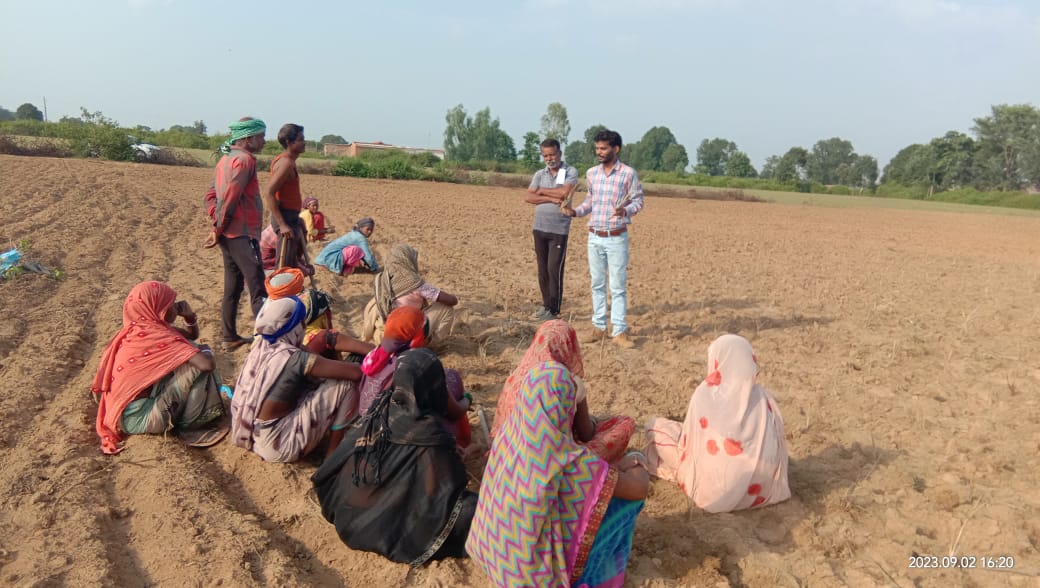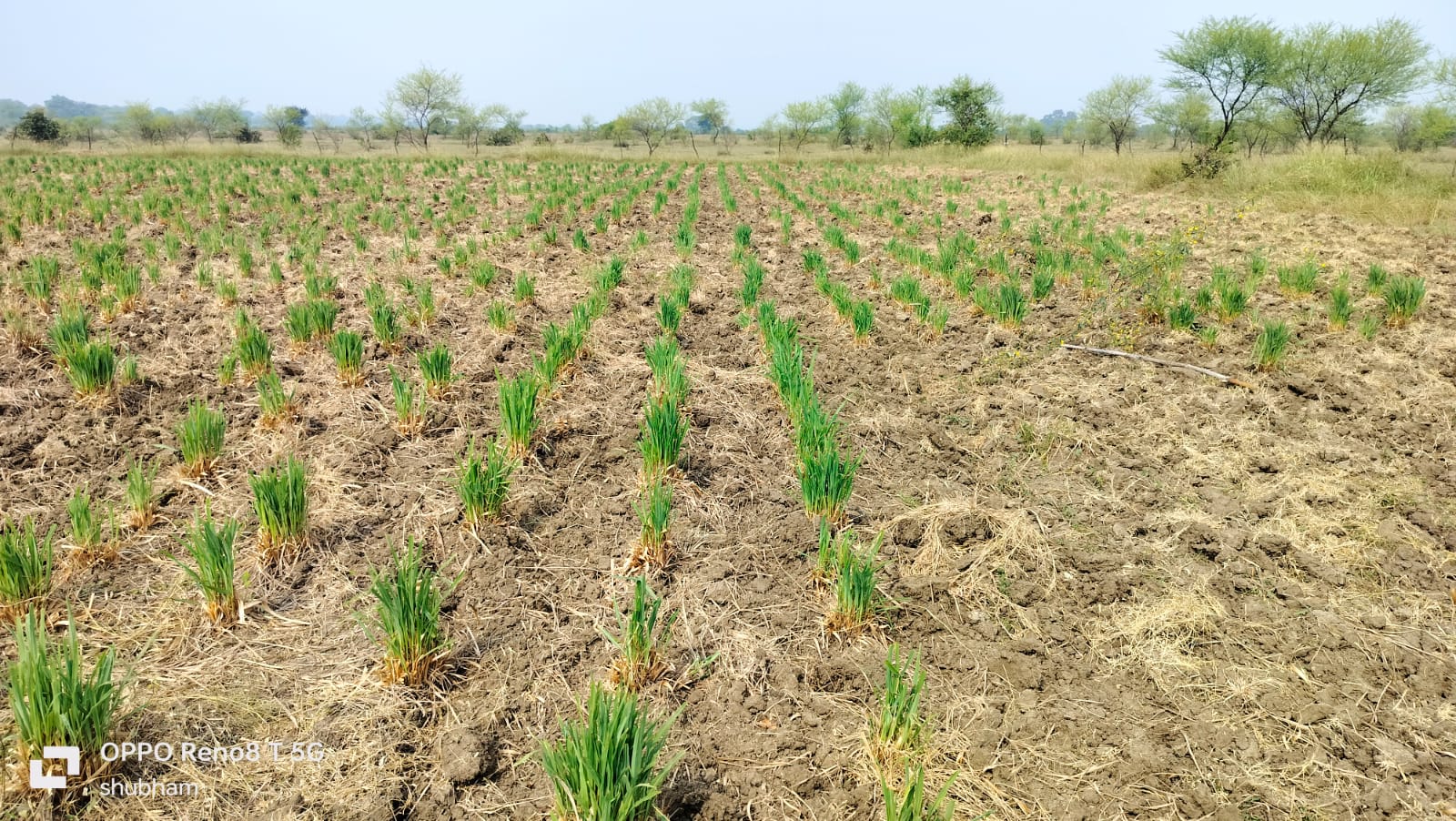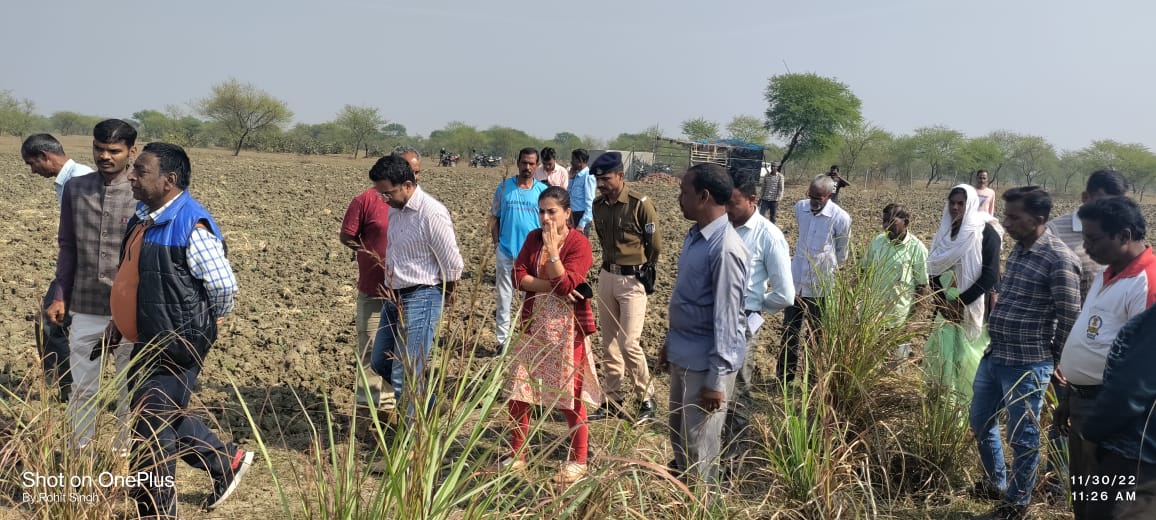Project Overview : Empowering Tribal Farmers through Lemongrass Cultivation
The Lemongrass Cultivation Project in Anuppur, Madhya Pradesh, India, initiated by Origin Oils, aims to empower tribal farmers and promote sustainable agriculture in the region. Through the cultivation of lemongrass on 500 acres of fallow land, the project involves various stakeholders such as tribal farmers, Origin Oils, district administration, research institutes, and supportive agencies. Lemongrass is chosen for its suitability to the local climate and its ability to thrive on unused land, maximizing resource efficiency.


Funding under the MNREGA Government Scheme covers the cost for farmers to participate. Origin Oils provides technical guidance, buyback guarantees, and investments in infrastructure. The project integrates circular economy principles by converting biomass into biochar, enhancing soil quality and generating carbon credits. Impact on tribal farmers includes sustainable livelihoods and improved socio-economic well-being.
Customers benefit from fully traceable and natural lemongrass oil. Overall, the project signifies sustainable development, empowering communities, revitalizing agriculture, and meeting market demand for ethically sourced products.

Project Overview: Empowering Tribal Farmers through Lemongrass Cultivation
- Introduction: Origin Oils has initiated a groundbreaking project to cultivate lemongrass across 500 acres of fallow land in the tribal district of Anuppur, Madhya Pradesh, India. This endeavor aims to uplift the socio-economic status of tribal farmers while promoting sustainable agriculture in the region.
- Stakeholders:
- Tribal Farmers: Beneficiaries and participants in cultivation activities.
- Origin Oils: Project initiator, providing technical support, assured buyback, and investment in infrastructure.
- District Administration: Collaborator in project coordination and facilitation.
- Central Institute for Medicinal and Aromatic Plants (CIMAP): Partner in research and technical expertise.
- Department of Agriculture and Horticulture: Supportive agency in implementation and monitoring.
- Indira Gandhi National Tribal University: Contributor to knowledge dissemination and community engagement.
- Rationale for Lemongrass Cultivation: Lemongrass, chosen for its hardy nature and low water requirement, presents an ideal crop for the region’s climatic conditions. Utilizing fallow lands, previously unused by farmers, maximizes resource efficiency and land utilization.
- Funding Mechanism: Under the MNREGA Government Scheme, funding is provided to farmers, covering the cost of planting materials and other inputs, thereby enabling participation in the project at no personal cost.
- Support and Investment from Origin Oils: Origin Oils offers technical guidance to farmers throughout the cultivation process and guarantees buyback of lemongrass produce. Additionally, investments in a distillation facility ensure efficient processing and value addition to the harvested lemongrass.
- Circular Economy Integration: The project aims to achieve circularity by converting spent biomass into biochar, which will enhance soil quality when returned to the fields. Carbon credits generated from this process will augment farmers’ income, fostering sustainability and resilience.
- Impact on Tribal Farmers: The project holds the promise of significant transformation in the lives of tribal farmers, offering them a sustainable source of livelihood, access to modern agricultural practices, and improved socio-economic well-being.
- Benefits for Customers: Customers can expect fully traceable and 100% natural lemongrass oil, derived from a transparent and sustainable supply chain. This assurance of quality and origin enhances the value proposition of the product in the market.
In summary, the Lemongrass Cultivation Project in Anuppur stands as a beacon of sustainable development, empowering tribal communities, revitalizing agricultural landscapes, and fostering economic prosperity, all while meeting the growing demand for natural, ethically sourced products.








